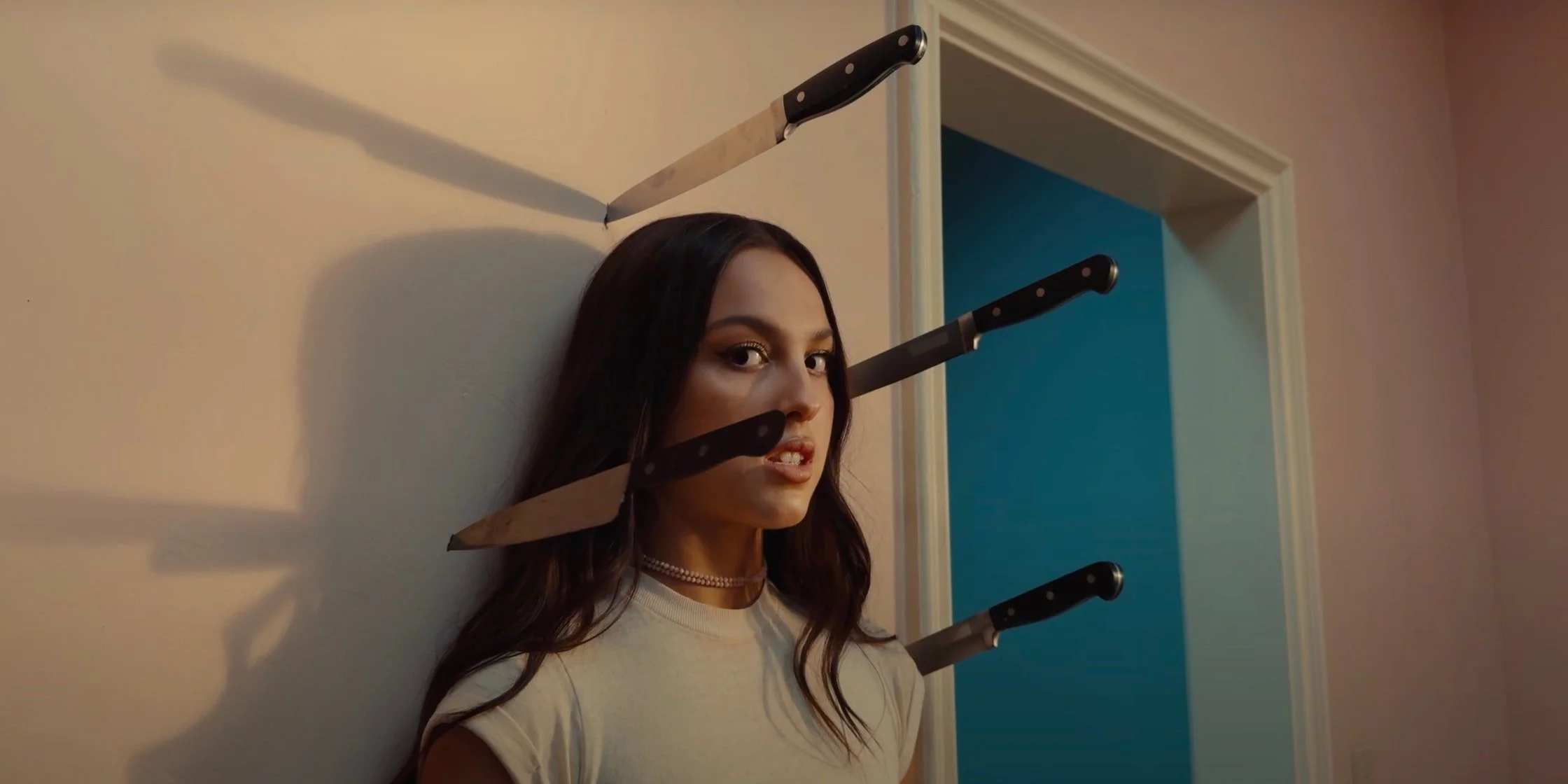Death of Homage
Olivia Rodrigo released her debut album, Sour, in May 2021 to rave reviews. It mixed pop punk with heartbroken ballads, making Rodrigo one of the first major Gen Z artists. The album also sparked controversy, as listeners and industry members highlighted its use of familiar arrangements from artists like Paramore and Taylor Swift. Litigation and a rumored feud continue to this day, but beneath the surface lies a lingering question: Is homage dead?
Photo by Grant Spanier, 2021
This topic is complex, largely due to the intricacies of legal terminology and the interpretation of laws. Copyright law varies from country to country; however, for the purposes of this article, we will focus on the U.S., where Olivia Rodrigo produced her album. Simplified, copyright law in the United States allows creators, including artists and musicians, to maintain ownership of their work and utilize it as they see fit. Copyright is automatic as long as the work is original, fixated (meaning it is accessible or tangible in some way), and exhibits minimal creativity. To further safeguard a song, American musicians typically register their work with the U.S. Copyright Office, which protects musicians and their work by providing a public record of ownership. This protection extends to song lyrics, arrangements, and the recordings. Artists may seek permission from the original creator to use their work in a new creation.
Olivia Rodrigo in “Get Him Back!
The issue with Rodrigo's 2021 release appears to be her failure to obtain initial permissions from Paramore and Taylor Swift for the arrangements of her songs. "Homage" is an artistic term, not a legal one, signifying a public display of respect or special honor. Merely stating that she drew inspiration from these artists is insufficient. Hayley Williams and Josh Farro (Paramore), Taylor Swift, and Jack Antonoff were credited as composers on the album after its initial release. As Jem Aswad for Variety notes, these credits were for interpolation, "which is essentially an element of a previously recorded song re-recorded and incorporated into a new song." Thus, while Rodrigo paid homage to her predecessors by putting a new spin on their work, the arrangements bore enough similarity that the original artists had to be credited for songs like “Good 4 U,” “Déjà Vu,” and “1 Step Forward.” These credits serve as the musical equivalent of citing your sources, yet this approach seems overzealous. Elvis Costello, another artist who inspired Rodrigo’s first album, dismissed the plagiarism accusations, tweeting, "You take the broken pieces of another thrill and make a brand new toy." This controversy has led some to speculate that "vampire" from Rodrigo's second album, Guts—an anger-filled ballad aimed at a once-admired individual—is about or inspired by Swift. Now, as blatant plagiarism reenters the cultural discussion and rumors persist about Rodrigo and Swift's falling out, it's worth discussing how these disputes might be harming the music industry. Music relies heavily on genre, and genres on familiar arrangements and subject matter. Drawing the line for what constitutes originality is challenging, especially from the perspective that all art builds on what came before. Disputes have turned the industry into a minefield due to these unclear boundaries, as outlets like Rolling Stone have observed. On one hand, it seems fair for Rodrigo to credit those who influenced her, while Swift and other musicians protect their original work. On the other hand, the music industry's aggressive stance on copyright infringement cases, exemplified by the high-profile case involving Ed Sheeran’s “Shape of You” in 2023, suggests that homage may not be dead. There are legal avenues to shield artists from the wrath of more prominent talent. Yet, the uncertainty of where the line is drawn discourages artists, draining them and leaving them preoccupied with legal ramifications rather than artistic expression. Perhaps Rodrigo’s "vampire" was not Taylor Swift, but the music industry's refusal to allow artists to simply be artists.


